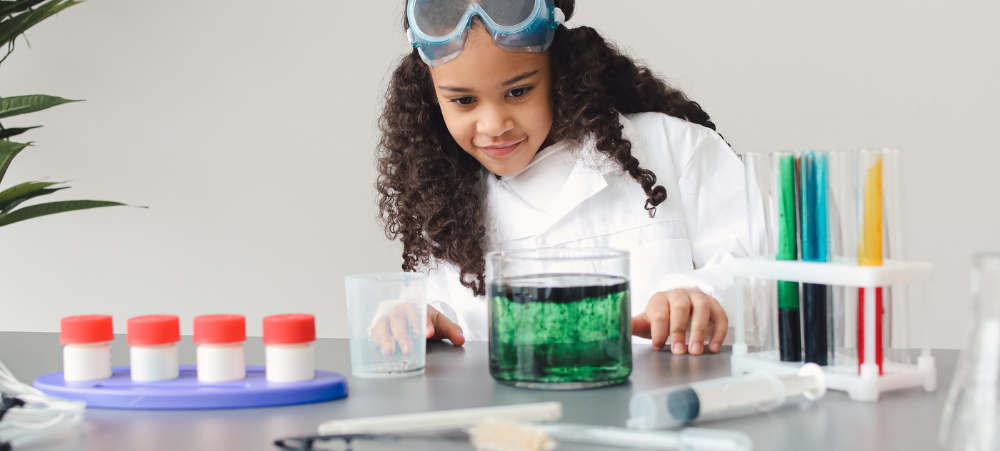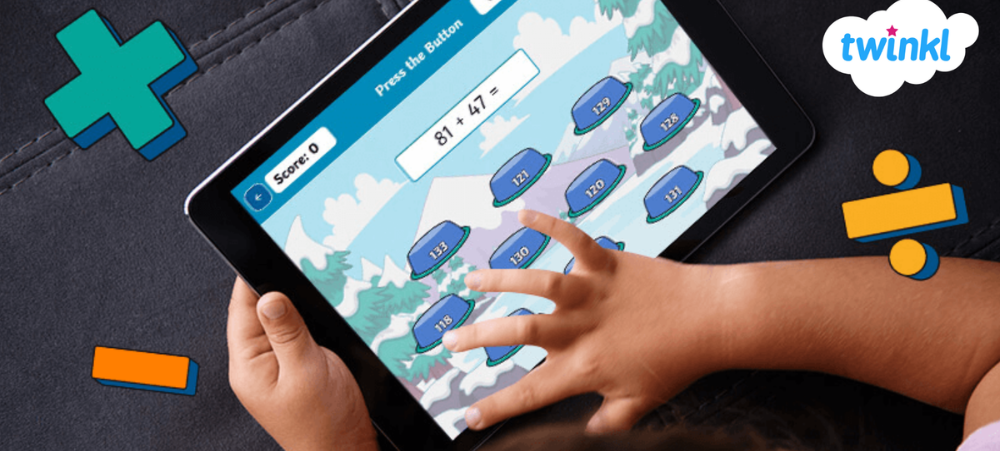In raising our children, most thinking parents instinctively focus on the essential elements that are required to prepare children for the opportunity to live a good life. Should we not also require a focus on these elements in the education systems we choose for our children?
Diane Tavenner, author of “Prepared: What kids need for a fulfilled life”, believes that schools that are truly designed to prepare every child for the opportunity to live a good life, focus on three elements. In her Keynote at EDUtech Asia, 2021, she explains that:
Preparing schools:
1. Nurture and develop a child’s curiosity
Schools that prepare children for a full life, do several things to nurture curiosity.
- They create a curriculum and learning experiences that are real world and authentic.
- Their students ask and seek to answer big questions that are relevant to them, their community and the world around them.
- They intentionally teach and nurture skills such as inquiry, analysis, hypothesising, research and questioning.
- They reward original thinking and view failure as an opportunity to learn, and in doing so, they attract and engage students in a learning environment that feels rich and relevant, as well as social and active.
2. Actively support every child and young adult in developing a specific identity or purpose
The core elements of a good life are community, relationships, and purposeful work. Young people who don’t engage in a journey to learn about themselves, what they value, what brings meaning to them and how that intersects with what they will do with their life, are often lost or asleep to themselves as they enter adulthood.
In preparing schools, each child is valued as a unique individual with a contribution to make and everyone in the community benefits when each child can develop their own sense of self and civic identity. We know from the science of learning, that a key factor in that developmental journey is mentorship, and being exposed to lots of ideas and experiences, with the options to explore and deeply pursue those that feel real.
4. Create self-directed learners
Preparing schools create self-directed learners. In many ways, this focus translates to one of the most dramatic changes in the schooling experience.
Schools that are preparing students for life, know that people who live good lives make their own paths. They put themselves in the driver’s seat of their life.
Learning schools know that learning the skills to be self-directed, takes years to practice and develop, and they:
- make learning accessible and transparent
- have taken advantage of modern technology and build interactive and engaging platforms that allow each and every student to learn anywhere, anytime and at a pace that maximises what they come to know and are able to do.
- reconceptualise the role of a teacher to be a mentor and facilitator of engaging experiences
- think about the entire learning journey of the student and how they can help them to foster the skills to ultimately own and drive that journey for themselves, so that when they do launch into adulthood, they are truly prepared to live a fulfilling life.
SCHOOL AT HOME WITH GLOBAL VILLAGE COLLEGE
We believe that, with appropriate resources and support, parents can give their children the opportunity to learn at home to prepare them to live fulfilled and successful lives.
The delivery of the Cambridge curriculum by Global Village College is the complete educational solution to school at home.
We want to give children the academic advantage and we also want them to develop an informed curiosity and a lasting passion for learning. We believe they can achieve all this by obtaining Cambridge International qualifications. These qualifications can open doors to South African and international universities and will get them future ready so that they can forge their own independent paths in the world.
For matriculants, Cambridge offers an international qualification that is a less stressful option than the South African National Senior Certificate. Instead of writing all exams in one sitting, Cambridge offers IGCSE and AS Level exams (Grade 11 and 12) over 2 sittings. Your child could write some subjects in November, others the following June and still have a third opportunity to write subjects in the following November.
In addition, once your child has written and passed a Cambridge subject, the certificate is issued by Cambridge International (UK) and your child will not need to write the subject again, unless they choose to. This means they can concentrate on their remaining subjects.
There is no age limit to write subjects with Cambridge.
Global Village College provides tutors and course material from specialists in each subject.
We offer a variety of options to suit different home-schooling needs. We will recommend the one that best suits your child and your involvement as a parent. We advise and assist you every step of the way, ensuring your child is supported and challenged where necessary.
Our courses include:
- Access to Google Classroom digital organising and communication system
- 30-week curriculum aligned course material with:
- Infographics and carefully selected internet links, including relevant video lessons
- Activities & Answers
- 5 Assignments & Memorandums
- Exam Papers & Memorandums
We will help you design a custom-made educational experience for your child.
A range of subject options is available and can be selected to meet the USAF minimum admission requirements for exemption for entry to South African universities.
We have pleasure introducing you here to two of our subject offerings.
YOU MIGHT WANT TO CONSIDER STUDYING HISTORY AND GEOGRAPHY
History and Geography are possible subject options for learners to include to meet the USAF minimum admission requirements for exemption for entry to South African universities. They also provide a good foundation for navigating life.
History gives us a time orientation – past, present, future. Geography gives us a spacial orientation – our place on earth, in the world.
Dr Richard Chernis, one of our highly experienced tutors, explains why you might want to consider these subjects.
REASONS TO STUDY HISTORY
To study history is to study change: historians are experts in examining and interpreting human identities and transformations of societies and civilizations over time. They use a range of methods and analytical tools to answer questions about the past and to reconstruct the diversity of past human experience: how profoundly people have differed in their ideas, institutions, and cultural practices; how widely their experiences have varied by time and place, and the ways they have struggled while inhabiting a shared world. Historians use a wide range of sources to weave individual lives and collective actions into narratives that bring critical perspectives on both our past and our present. Studying history helps us understand and grapple with complex questions and dilemmas by examining how the past has shaped (and continues to shape) global, national, and local relationships between societies and people.
In an ever-changing society and with a future filled with tremendous uncertainty, we need to be prepared for and understand how our society and others work. Not only do we see change on the front of technology, but also in the moral standards of people and on the topic of globalisation. And so, we have to ask: are we able to shape students to become global citizens with the ability to negotiate, create and shape a better world? Will this generation be ready for the change?
History aids us in understanding what brought on change and how we should better deal with it. For example, we should take note of the small changes and events that led up to the World Wars. We need to realise that something small can set off a huge change. In this ever-changing world, it is therefore more important than ever before to find one’s identity amidst all this change.
Because history gives us the tools to analyse and explain problems in the past, it positions us to see patterns that might otherwise be invisible in the present – thus providing a crucial perspective for understanding (and solving!) current and future problems. For example, a course on the history of public health might emphasize how environmental pollution disproportionately affects less affluent communities – a major factor in the Flint water crisis. Understanding immigration patterns may provide crucial background for addressing ongoing racial or cultural tensions. In many ways, history interprets the events and causes that contributed to our current world.
History Builds Empathy Through Studying the Lives and Struggles of Others
Studying the diversity of human experience helps us appreciate cultures, ideas, and traditions that are not our own – and to recognize them as meaningful products of specific times and places. History helps us realize how different our lived experience is from that of our ancestors, yet how similar we are in our goals and values.
The study of history enables us to be better people as we start to build empathy, understanding and the ability to negotiate.
The Cambridge approach
The reason why students might find history boring is because of the lacklustre manner in which schools offer historical content as facts to be regurgitated. This tedious manner of learning can simply not be beneficial. The Cambridge approach is based on self-discovery and research. This way of learning links more to the actual study of history in that we want to uncover secrets that have been lost in time.
7 GOOD REASONS TO STUDY GEOGRAPHY
1. Geography helps us understand basic physical systems that affect everyday life: How water cycles and ocean currents work are all explained with Geography. These are important systems to monitor and predict in order to help lessen the impact of disasters. At the same time, these systems can be monitored for important resources to tap in to.
2. To learn the location of places and the physical and cultural characteristics of those places in order to function more effectively in our increasingly interdependent world: Given how global our modern marketplace is, it’s important to have an understanding of where countries and cultures are located relative to one another.
3. To understand the geography of past times and how geography has played important roles in the evolution of people, their ideas, places and environments: Geographical knowledge intersects with other subjects such as Biology and History and can help to gain a better understanding of the ‘big picture’ in these topics.
4. To understand the spatial organisation of society and see order in what often appears to be random scattering of people and places: Why do we live in the cities and places that we do? Studying Geography gives us a good idea of why towns and cities were established in certain locations and why some have flourished more than others.
5. To be able to make sensible judgements about matters involving relationships between the physical environment and society: Similarly to the last point, why don’t we live in certain locations? An understanding of Geography lets us know which locations aren’t ideal for development as well as how best to develop or expand cities and towns.
6. To appreciate Earth as the homeland of humankind and provide insight for wise management decisions about how the planet’s resources should be used: Earth’s resources are finite and need to be managed in a responsible way. Geography informs us of how to sustainably utilise the resources that are available as well as help to improve the status of those that are in danger of running out.
7. To understand global interdependence and to become a better global citizen: Lastly, Geography can help us to be more conscious-minded about the world around us. Being a better global citizen means understanding others better and knowing the limitations of the Earth, both of which work toward making our planet a more liveable one.
Find out more about us at: https://globalvillageint.com/
Contact us at: [email protected] or 068 3256858
Introduction transcribed and adapted from: https://www.youtube.com/watch?v=7ytQVJKTtwk
EDUtechASIA 2021 – 9 Nov – 0900 (Keynote) – Creating the schools our children deserve designing.
Dr Richard Chernis (B.A., S.T.D., B.ED., B.A. (Honours), M.ED., PH.D. is a passionate educator with 40 years’ experience in various fields of education.
curriculum aligned programmes with course material, video lesson links,
activities with answers, assessments with memorandums, and examinations with memorandums.Students have access to our Google Classroom where all their
material is loaded.Our bespoke approach to education empowers each child to become a self-directed learner and to learn as they learn best.
- HOW TO ENROL FOR CAMBRIDGE INTERNATIONAL EXAMINATIONS - August 11, 2022
- HOW TO APPLY TO UNIVERSITY WITH CAMBRIDGE QUALIFICATIONS - June 8, 2022
- PREPARING CHILDREN FOR A FULFILLED AND SUCCESSFUL LIFE - April 11, 2022





